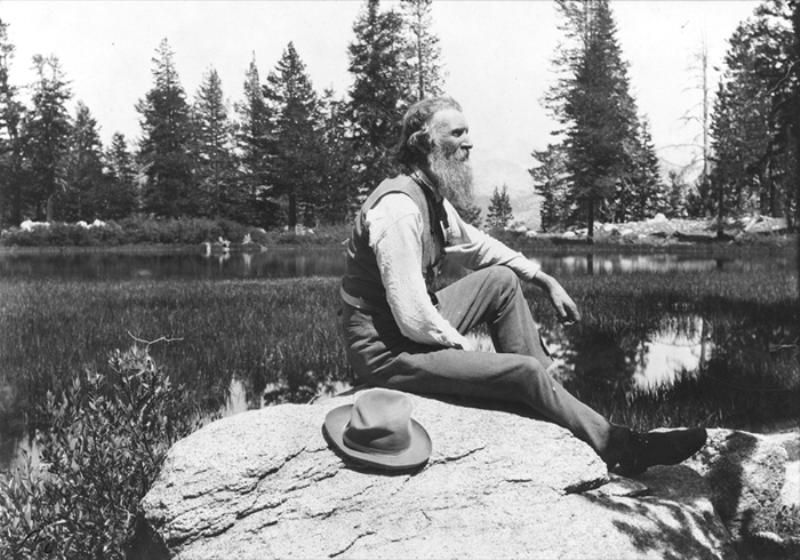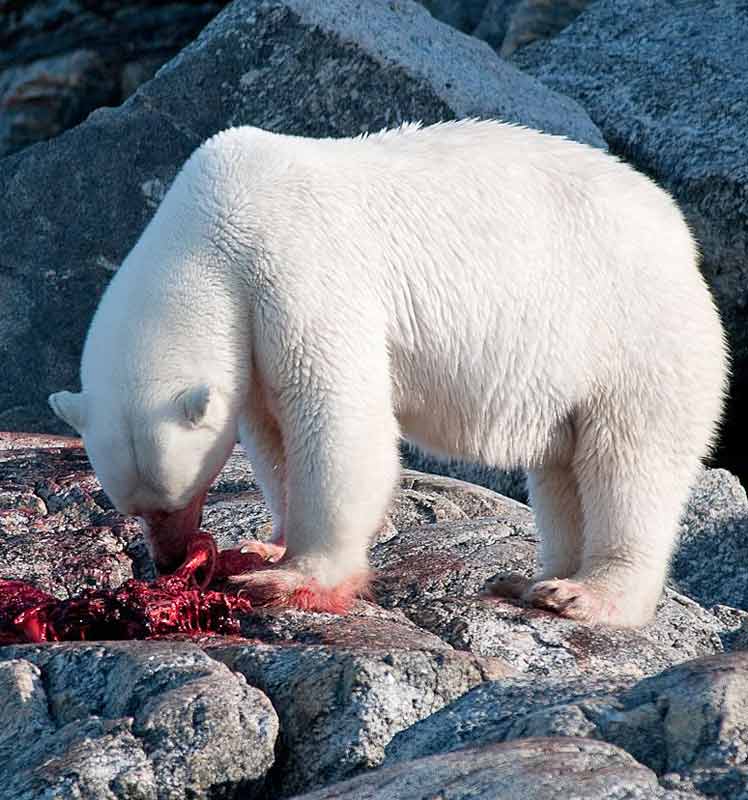For the vast majority of our "civilised", western world, the natural world and the natural order of things lives in books - and usually books written long ago, detailing long gone expeditions and adventures. We may read or hear of the great explorers, Scott, Amundsen, Shackleton, Hillary and Tensing, Livingstone and others, but those events are receding into our collective past at an increasing rate of knots. As the era of big adventures disappears into history it's not only the lessons of these adventurers we've lost but we've lost the connection with the natural world that makes such endevours what they were. Quite simply we've allowed ourselves to become cocooned in an artificial environment where we only see our own race as relevent and our adventures are mundane.
Humans are not alone, we're part of a whole and it's a whole that despite our technological achievements and self-delusions we do not control. The Polar Bear knows nothing of our "civilised society" and our rules, it's simply doing what it's always done for survival in the same places it's always done them. The scary thing is that we, as a society, are shocked by this. 100 years ago the news of a bear, whether Polar, Brown or Black, killing or injuring people would hardly have raised an eyebrow but over the last 100 years we've changed our perception of our place in the world and somehow think we're beyond the touch of any other species. When reality strikes it hurts! Nature still exists out there and with it the same dangers that were there 100 years ago are still there now, but we've grown soft and complacent and so cut off from nature in our daily existence that we've forgotten what that really means.
 This self-delusional lifestyle we lead tries to sanitise adventure and make it safe, and in doing so it takes us further away from both true adventure and from nature itself. As Chris Townsend so rightly says, "Interacting with nature in this way is challenging, both physically and mentally There is a sense of immediacy and alertness rarely found in urban life. This is both beneficial to the individual's mind and body", but as a species we're in danger of losing the ability to deal with the mental side of adventure through ignorance. In a land where far too many people are incapable of mentally connecting the burgers they eat with cows in the field is it any surprise we're shocked at the sheer cheek of an animal killing a person? Polar Bears are no more dangerous than they were 100 years ago, it's only our disconnection with the world outside our daily sphere of influence that makes us think so. That same disconnection sees us create new, artificial, adventures to assuage the human desire to explore and push our limits - yet simultaneously we ignore and forget that nature itself provides all the adventure we need.
This self-delusional lifestyle we lead tries to sanitise adventure and make it safe, and in doing so it takes us further away from both true adventure and from nature itself. As Chris Townsend so rightly says, "Interacting with nature in this way is challenging, both physically and mentally There is a sense of immediacy and alertness rarely found in urban life. This is both beneficial to the individual's mind and body", but as a species we're in danger of losing the ability to deal with the mental side of adventure through ignorance. In a land where far too many people are incapable of mentally connecting the burgers they eat with cows in the field is it any surprise we're shocked at the sheer cheek of an animal killing a person? Polar Bears are no more dangerous than they were 100 years ago, it's only our disconnection with the world outside our daily sphere of influence that makes us think so. That same disconnection sees us create new, artificial, adventures to assuage the human desire to explore and push our limits - yet simultaneously we ignore and forget that nature itself provides all the adventure we need.
The shock of Svalbard was not that someone was mauled and killed by a Polar Bear, but that a group of humans weren't able to prevent it. It came as a shock because we've become accustomed to being in control of every part of our lives and forgotten that we're not disconnected from nature but a part of it. In many ways it's a sign of what we've become and an timely reminder of the importance of remembering that without the technology we adorn ourselves with we're simply another animal - albeit one with a good sized brain. For thousands of years we knew this instinctively, and acted appropriately, but in an age where "adventure" is constructed, sanitised and made safe we've lost that instinct. Faced with real adventure we've lost the instinct that for thousands of years would have warned us of danger AND the belief that something could conceivably go wrong. If anything this should not be a call to further sanitise or restrict adventure but a reminder that we need to be more aware of nature in ALL its guises. Without adventure as a species we'll lose much of what makes us what we are, but without reconnecting with nature we'll lose the spirit that creates true adventure.
The events of the last week have been tragic, and our thoughts are with the families of the victims,but also something we should learn from. Some will say such adventure holidays are dangerous and we should not allow our young people to put themselves at risk, but as Chris Townsend explains "All adventures involve risk. Without it there is no adventure.......it will always be present and that means that, very occasionally, despite all precautions, there will be terrible accidents. But what is the alternative? To never venture out, never do anything that might be risky, never live?" Perhaps the real lesson is not to eliminate adventure, but to re-evaluate our position in nature, appreciate the risks and value what nature offers us more honestly.
Note: This article was restored from the archives. It's published creation date is inaccurate.

